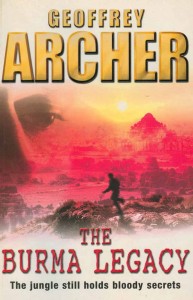(see also WoWasis’ Burma Non-Fiction bookshelf)
The exoticism of Burma has been well-documented in fact and fiction. Well-known writers such as George Orwell have based their novels on Burmese political and cultural life, while a number of non-fiction writers have investigated Burmese topics ranging from the flora and fauna of the country to its complex and fascinating history. Travelers contemplating a visit to Burma will find their visits enhanced by reading about the nation beforehand, and investigating its political history from WWII onward is de rigueur.
Due to the dearth of bookstores in Burma, readers are advised to buy and read their books before traveling. While historical novels such as Orwell’s Burmese Days can be found in-country, they will generally be locally-made photocopies.
Warning: the carrying of any books or literature perceived to be critical of the present political régime may be grounds for expulsion from the country, and/or result in an uncomfortable interview with the authorities.
Fiction on Burma
The drug trade emanating from the Golden Triangle is one of the several fascinating sub-plots of Geoffrey Archer’s The Burma Legacy (2002, ISBN 0-7126-82961), which also describes events relating to the incursion of the Japanese in World War Two. Set in modern times, Archer’s protagonists are British and Australian government agents attempting to thwart a revenge killing that threatens to economically destabilize an international agreement.
George Orwell’s classic Burmese Days (1934, ISBN 014-0004-564) is set in the days of the British Empire, and weaves the tale of a Western timber merchant’s life amidst the corruption and intrigue of colonial Burma. Orwell is a keen observer of the complexities in the juxtaposition of native and imperialist cultures.
Daniel Mason’s well-crafted The Piano Tuner (2002, ISBN 1-4000-3038-2) is set in British colonial times, and offers some interesting insight into Shan-Burmese relations. The first 100 or so pages are tough-going, but the book eventually becomes a fascinating study of individual character and interpersonal relationships.
Alex O’Brien’s Midnight in Burma (2001, ISBN 974-8303-58-6) relates the story of an international lawyer’s plunge into the dangerous world of drugs and intrigue, driven by his fascination with a beautiful, intelligent stranger, and his investigation into her disappearance.
Primarily a writer of Bangkok Fiction, Christopher G. Moore has penned a novel based in Burma, Waiting for the Lady (2003, ISBN 974-90755-6-0), in which a “part-time art dealer and full-time rogue” finds himself in possession of a camera containing pictures of Aung San Suu Kyi, and develops a passion for finding the history of the camera’s owner.
British author Col Cotterill’s background includes stints with child protection agencies on Southeast Asia, which clearly shows through in Evil in the Land Without (2003, ISBN 974-8303-70-5). With action taking place primarily in England and the Karen border area of Burma and Thailand, Cotterill details the workings of an international crime ring focusing on children. The book is well-written, although we would have liked to have seen an ending perhaps a little less pat.

Leave a Reply